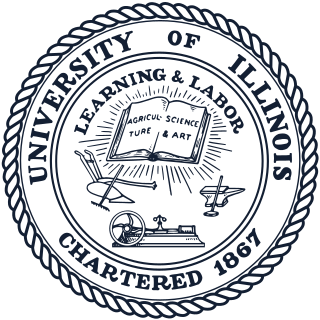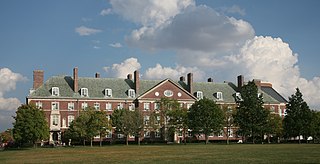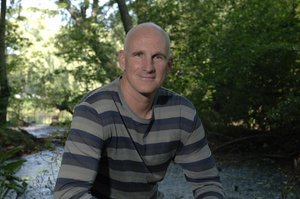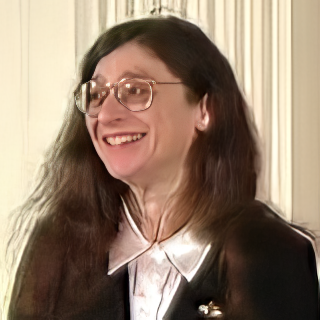Related Research Articles

Organic farming is an agricultural system which originated early in the 20th century in reaction to rapidly changing farming practices. Certified organic agriculture accounts for 70 million hectares globally, with over half of that total in Australia. Organic farming continues to be developed by various organizations today. It is defined by the use of fertilizers of organic origin such as compost manure, green manure, and bone meal and places emphasis on techniques such as crop rotation and companion planting. Biological pest control, mixed cropping and the fostering of insect predators are encouraged. Organic standards are designed to allow the use of naturally occurring substances while prohibiting or strictly limiting synthetic substances. For instance, naturally occurring pesticides such as pyrethrin and rotenone are permitted, while synthetic fertilizers and pesticides are generally prohibited. Synthetic substances that are allowed include, for example, copper sulfate, elemental sulfur and Ivermectin. Genetically modified organisms, nanomaterials, human sewage sludge, plant growth regulators, hormones, and antibiotic use in livestock husbandry are prohibited. Organic farming advocates claim advantages in sustainability, openness, self-sufficiency, autonomy/independence, health, food security, and food safety.

Urbana is a city in and the county seat of Champaign County, Illinois, United States. The population is estimated at 42,214 as of July 1, 2019. Urbana is the tenth-most populous city in Illinois outside of the Chicago metropolitan area. It is included in the Champaign–Urbana metropolitan area.

Agronomy is the science and technology of producing and using plants in agriculture for food, fuel, fiber, and land restoration. It is both a humanitarian career and a scientific one. Agronomy has come to encompass work in the areas of plant genetics, plant physiology, meteorology, and soil science. It is the application of a combination of sciences like biology, chemistry, economics, ecology, earth science, and genetics. Agronomists of today are involved with many issues, including producing food, creating healthier food, managing the environmental impact of agriculture, distribution of agriculture, and extracting energy from plants. Agronomists often specialise in areas such as crop rotation, irrigation and drainage, plant breeding, plant physiology, soil classification, soil fertility, weed control, and insect and pest control.

Sustainable agriculture is farming in sustainable ways, which means meeting society's present food and textile needs, without compromising the ability for current or future generations to meet their needs. It can be based on an understanding of ecosystem services. There are many methods to increase the sustainability of agriculture. When developing agriculture within sustainable food systems, it is important to develop flexible business process and farming practices.
Agroecology (a-grō-ē-ˈkä-lə-jē) is an applied science that studies ecological processes applied to agricultural production systems. Bringing ecological principles to bear can suggest new management approaches in agroecosystems. The term is often used imprecisely, as the term can be used as a science, a movement, or an agricultural practice. Agroecologists study a variety of agroecosystems. The field of agroecology is not associated with any one particular method of farming, whether it be organic, integrated, or conventional, intensive or extensive, although some use the name specifically for alternative agriculture.

The University of Illinois at Urbana–Champaign is a public land-grant research university in Illinois in the twin cities of Champaign and Urbana. It is the flagship institution of the University of Illinois system and was founded in 1867.
The Soil Association is a charity based in the United Kingdom. Founded in 1946, its activities include campaign work on issues including opposition to intensive farming, support for local purchasing and public education on nutrition; as well the certification of organic food.
Biodynamic agriculture is a form of alternative agriculture very similar to organic farming, but it includes various esoteric concepts drawn from the ideas of Rudolf Steiner (1861–1925). Initially developed in 1924, it was the first of the organic agriculture movements. It treats soil fertility, plant growth, and livestock care as ecologically interrelated tasks, emphasizing spiritual and mystical perspectives.
TheDaily Illini, commonly known as the DI, is a student-run newspaper that has been published for the community of the University of Illinois at Urbana–Champaign since 1871. Weekday circulation during fall and spring semesters is 20,000; copies are distributed free at more than 250 locations throughout Champaign–Urbana.

The Champaign–Urbana metropolitan area, also known as Champaign–Urbana and Urbana–Champaign as well as Chambana (colloquially), is a metropolitan area in east-central Illinois. It is the 191st largest metropolitan area in the U.S. It is composed of three counties, Champaign, Ford, and Piatt. The Office of Management and Budget has designated the three-county Champaign–Urbana area as one of its metropolitan statistical areas, which are used for statistical purposes by the Census Bureau and other agencies.
The Illini Media Company is a nonprofit, student media company based in Champaign, Illinois. The company owns several student-run media outlets associated with the University of Illinois at Urbana–Champaign: the general newspaper, the Daily Illini; the entertainment paper, Buzz Magazine; the engineering quarterly, Technograph; the U of I yearbook, the Illio; and the commercial radio station, WPGU.

The University of Illinois at Urbana–Champaign's College of Agricultural, Consumer and Environmental Sciences (ACES) is part of the University of Illinois at Urbana–Champaign and is considered by some to be the top school of agriculture-related sciences in the world. Most of the ACES buildings are located on the South Quad. In terms of staff, ACES has 186 tenure-system faculty, 78 specialized faculty, 26 postdoctoral researchers, 493 academic professionals, 565 civil service staff, 323 assistants, and 956 hourly employees.

Cutler J. Cleveland is an author, consultant, academic, and business executive. His research primarily involves natural resources, energy use, and their related economies. Dr. Cleveland is the editor-in-chief of the Encyclopedia of Energy and winner of an American Library Association award. He is also the founding editor-in-chief of the Digital Universe Encyclopedia of Earth.

May Roberta Berenbaum is an American entomologist whose research focuses on the chemical interactions between herbivorous insects and their host plants, and the implications of these interactions on the organization of natural communities and the evolution of species. She is a member of the National Academy of Sciences and was named editor-in-chief of its journal, Proceedings of the National Academy of Sciences in 2019; she is also a member of the American Philosophical Society (1996), and a fellow of the American Academy of Arts and Sciences (1996). She has held a Maybelle Leland Swanlund Endowed Chair in entomology since 2012, which is the highest title a professor can hold at the University of Illinois. In 2014, she was awarded the National Medal of Science.
The term food system is used frequently in discussions about nutrition, food, health, community, economic development and agriculture. A food system includes all processes and infrastructure involved in feeding a population: growing, harvesting, processing, packaging, transporting, marketing, consumption, distribution and disposal of food and food-related items. It also includes the inputs needed and outputs generated at each of these steps. A food system operates within and is influenced by social, political, economic, and environmental contexts. It also requires human resources that provide labor, research and education. Food systems are either conventional or alternative according to their model of food lifespan from origin to plate.
Sustainable Electronics Initiative (SEI) is an initiative started in the United States in the summer of 2009 by the Illinois Sustainable Technology Center, which is a division of the Institute of Natural Resource Sustainability of the University of Illinois at Urbana-Champaign. SEI is dedicated to developing and implementing sustainable means for the design, manufacturing, remanufacturing, and recycling of electronics Members of SEI include individuals from academia, non-profit organizations, government agencies, manufacturers, designers, recyclers and refurbishers.
George H. Miley is a professor emeritus of physics from the University of Illinois at Urbana–Champaign. Miley is a Guggenheim Fellow and Fellow of the American Nuclear Society, the American Physical Society and the Institute of Electrical and Electronics Engineers. He was Senior NATO Fellow from 1994 to 1995, received the Edward Teller Medal in 1995, the IEEE Nuclear and Plasma Science Award in Fusion Technology in 2003 and the Radiation Science and Technology Award in 2004. He holds several patents.
The Prairie Research Institute is a multidisciplinary research institute charged with providing objective research, expertise, and data on the natural and cultural resources of Illinois. It was established as a unit of the University of Illinois at Urbana-Champaign by a Public Act of the Illinois State Legislature in 2008. The institute comprises four state scientific surveys: the Illinois Natural History Survey (INHS), the Illinois State Archaeological Survey (ISAS), the Illinois State Geological Survey (ISGS), and the Illinois State Water Survey (ISWS), and the institute also houses the Illinois Sustainable Technology Center (ISTC). The institute has a combined total staff of more than 700 employees, with facilities located on the Urbana-Champaign campus of the University of Illinois, and field offices and research stations throughout the state.

History of Education Quarterly is a quarterly peer-reviewed academic journal covering the history of education. It is published by Cambridge University Press on behalf of the History of Education Society and was established in 1949 as the History of Education Journal, obtaining its current name in 1961. At the time, Ryland W. Crary became the editor-in-chief. He was succeeded by Henry J. Perkinson ; Paul H. Mattingly and James McLachlan ; Edward McClellan ; William J. Reese ; Richard J. Altenbaugh ; James D. Anderson, Yoon Pak, and Christopher Span ; Nancy Beadie and Joy Williamson-Lott. The current editors are AJ Angulo and Jack Schneider.
Matthew Sakiestewa Gilbert is a distinguished Associate Professor in the Department of History and a Dean's Fellow and Conrad Humanities Scholar in the College of Liberal Arts and Sciences at the University of Illinois at Urbana-Champaign. He is an enrolled member of the Hopi Tribe. A graduate of The Master's College, Talbot School of Theology, and the University of California, Riverside, Gilbert specializes in researching and teaching on Native American history and the American West.
References
- ↑ "Organic Agriculture Pioneer Receives 'Genius' Award", Vegetarian Times, Oct 1988
- ↑ "Garth Youngberg's Fertile Vision; The Natural-Farming Expert Reaps a Genius' Award'", The Washington Post, Ward Sinclair, Aug 1, 1988
- ↑ Urbana-Champaign, ATLAS, LAS, University of Illinois at. "Award Recipients « Award Programs « Alumni Association « Alumni & Friends « College of LAS « Illinois". www.las.illinois.edu. Retrieved 2016-04-11.
- ↑ Policy Studies Journal: The Journal of the Policy Studies Organization. University of Illinois. 1974-01-01.
- ↑ "News and Notes", Nack Young An, The Journal of Politics, Vol. 43, No. 2 (May, 1981), pp. 632-637
- ↑ The Free Lance-Star Nov 12, 1979
- ↑ "Archived copy". Archived from the original on 2010-02-09. Retrieved 2010-04-16.CS1 maint: archived copy as title (link)
- ↑ "Alternative Agriculture News from the Wallace Institute -- August '99". www.ibiblio.org. Retrieved 2016-04-11.
- ↑ "Alternative Agriculture' Harvesting New Support", The Morning Call, October 01, 1989, PETE LEFFLER
- ↑ The grasslands of the United States: an environmental history, James Earl Sherow, ABC-CLIO, 2007, ISBN 978-1-85109-720-3
- ↑ Brewster, David E.; Rasmussen, Wayne David; Youngberg, Garth (1983-01-01). Farms in Transition: Interdisciplinary Perspective on Farm Structure. Iowa State University Press. ISBN 9780813806365.
- ↑ "Archived copy". Archived from the original on 2011-07-18. Retrieved 2010-04-16.CS1 maint: archived copy as title (link)